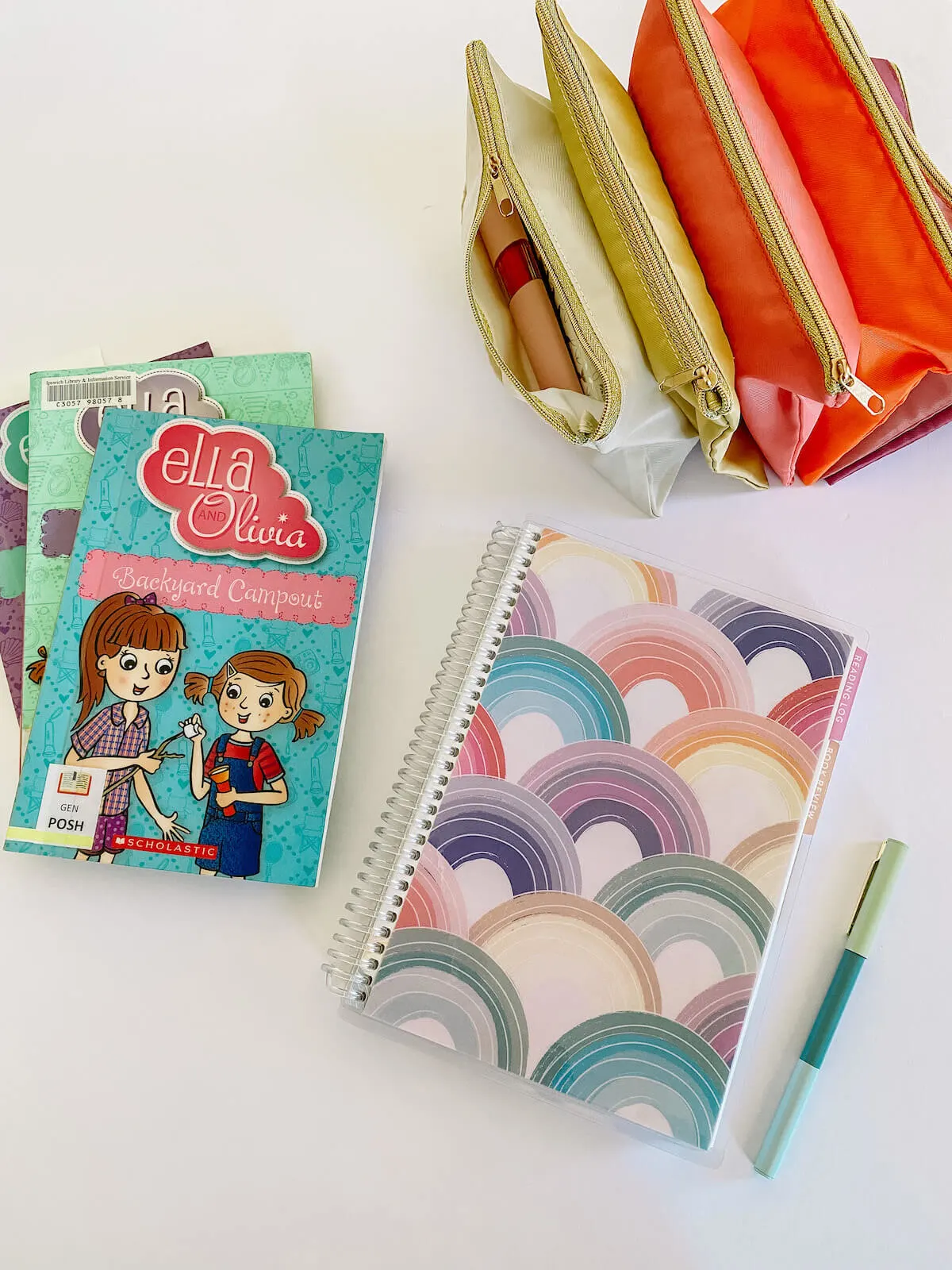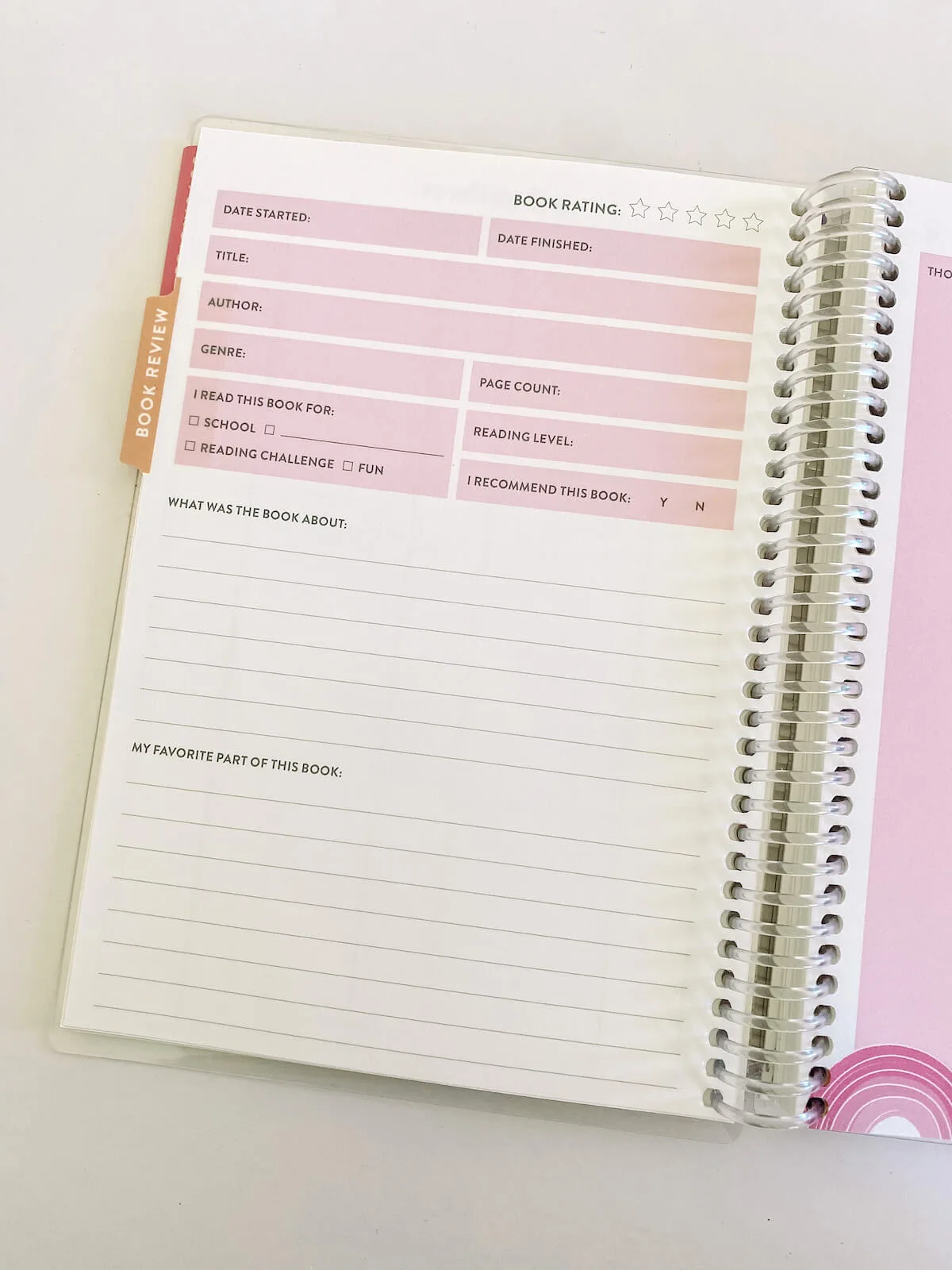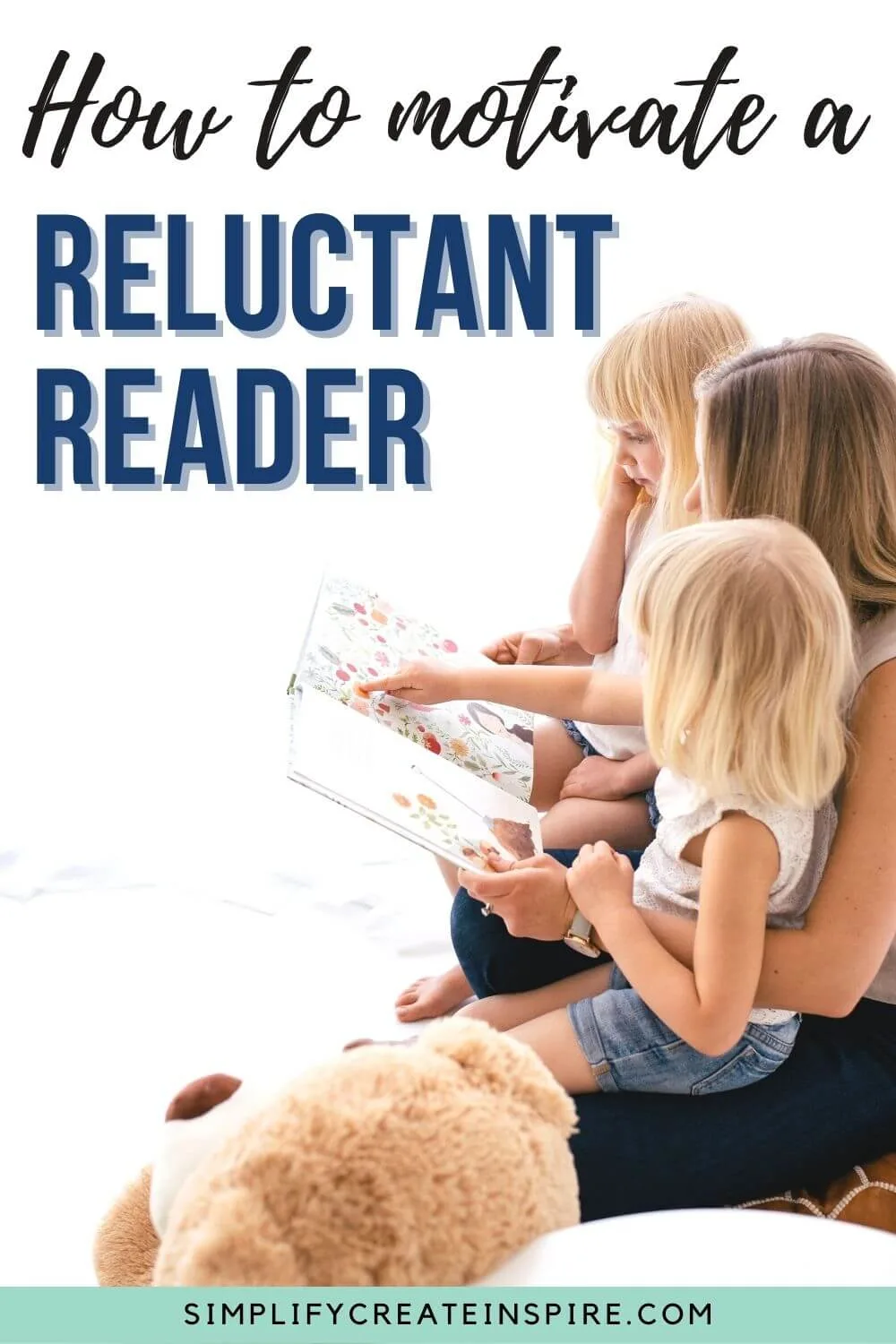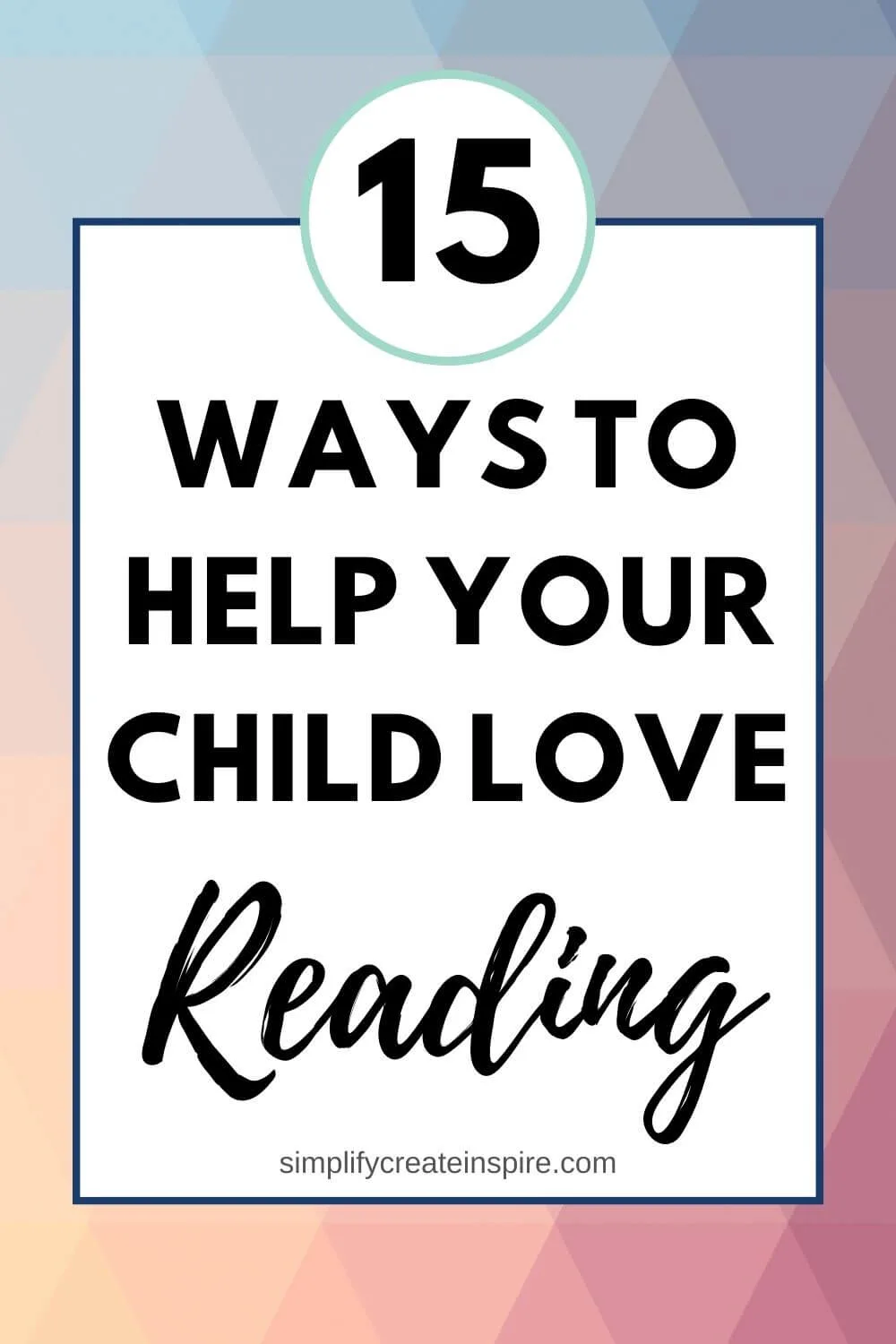Reading is a skill that is important for any child to learn how to do. But how can you help your child enjoy reading and get them to read more often? In this article, we will share some tips on how you can motivate your child to read more often and help overcome reluctant reader challenges.

With technology and electronic devices competing for their attention, the simple enjoyment of reading is one that fewer kids seem to develop.
Even the way you can read a book has been given a technological makeover, with the availability of audiobooks and electronic books as alternatives to the traditionally illustrated paper storybooks.
However, being able to read is a skill that is essential for children and adults alike and the best place to start is by helping them to develop a love of reading right from an early age.
But this is not always so easy when they’d rather be streaming the latest episode of their favourite show on Netflix or beating their personal best on video games.
Reading with children from an early age helps them develop a solid foundation for literacy, with 15 minutes of daily reading seeming to be the “magic number” at which children start seeing substantial positive gains in reading achievement.
Encouraging a daily journal writing practice is a great way to reinforce a daily habit for your child. These gratitude journals for kids and teens are great ways to encourage your child to read and write more often!
Why Is Your Child A Reluctant Reader?
Before you can focus on motivating your child to read more, it helps to get a grasp on what may be holding them back. A child may be reluctant to read for a number of reasons:
They lack confidence in their reading skills – if they do not want to make any mistakes when it comes time to read aloud, it can lead them to avoid picking up a book at all.
Reading is often associated with how well someone does in school so some children may worry about how they will be judged if they cannot read a book as well as the teacher or other students. Always use positive reinforcement and praise to support them.
They’re not interested in what you are reading – some parents get carried away with only thinking of books that their child should read, which can leave them feeling overwhelmed and uninterested in the options available.
Even as adults we are likely to avoid any books that aren’t within our area of interest so kids are no different!
They do not understand how reading can be relaxing or fun – if they think that you only read for school, it’s likely that they will not find reading enjoyable.
It is important to address these barriers and work with your child to help them overcome any hurdles together!
There could be a learning barrier – Something may be preventing your child from reading well if they appear to struggle with the basic concepts of how to read. They may not be able to decode words, meaning they cannot sound out and recognise single letters in an individual word.
It’s important that if you think this is the case, you speak with your child’s teacher for further advice on how best to help them learn how to read better!
Keep in mind that all children learn at different rates though, so it may just mean that your child needs a little more time to develop their basic reading skills compared to some other children.
Find more activities to do at home with kids plus over 100 fun ideas for the backyard too!
How To Motivate Your Child To Read (And Actually Enjoy It)
Reading is a crucial skill that can help your child succeed in school and life. But how do you get them to read more? Children are often overwhelmed by the amount of reading they have to do in school.
Even if they like reading, it can still seem like too much work!
First things first – you need to make reading fun! There’s no point in forcing your child into something that doesn’t feel enjoyable.
So instead of trying to force them into doing more homework, focus on making reading something they want to do!
You might not think this is possible, but there are actually lots of ways you can make reading easier and more fun for your child.
So how do you motivate your child to read more often and actually develop a love of reading books? Here are some tips to get them to read more.
1. Read Out Loud Together

For younger children especially, reading with your child is a great way for parents and children alike to bond.
Take turns reading aloud with them so they can see how much fun being read to can be, while also having a chance to practice their own reading skills with guidance from you.
Talk to your about what is happening or how the story makes them feel, or ask each other questions that will make it interactive e.g., “What do we think she’s going to do next?” or “How do you think the story will end?” and “What do you think we will see on the next page?”.
The conversation that takes place along with your shared reading time can help kids improve their comprehension skills and become more confident readers.
Older kids can also practice reading to younger siblings, for a special family reading time that promotes a culture of reading, even with young kids who can’t yet read themselves.
2. Make Reading A Habit
Create a habit of reading books together each day, before bed or at another time you are both usually able to set aside some time.
Getting your child into good habits starts early on in life, whether it be reading, chores, or healthy habits.
So it’s important to set aside time for reading at a time when they are receptive to listening or practising their reading skills. This is where bedtime is often a perfect time, as a way of helping your child wind down from the day before sleep.
3. Choose Books They Will Enjoy

Make reading more fun by finding books that your child enjoys. There are a lot of different genres out there to appeal to every type of reader, so you’re bound to find something they’ll like!
For your child, their favourite type of book might feature brave characters and adventure, or silly stories that make them laugh out loud.
Sometimes they won’t be able to choose the reading material, with home readers from school, so make your home library one that caters to your child’s interests.
Think outside the box too!
It doesn’t need to be a book. If your child loves superheroes, why not have them practice reading comic books instead. For older kids who struggle with endless pages of text, try graphic novels to give them images to break up the text.
Find tips on how to store kids’ books to make sure your home library stays organised.
4. Find Reading Opportunities Everywhere
Integrate reading into daily routines. Use household tasks and leisure pastimes as an opportunity to practice reading.
Ask your kids what’s printed on a restaurant menu, to read the ingredients of a recipe or road signs they pass by.
Leave each other messages spelled out with magnetic refrigerator letters as a cute way to strengthen your bond and strengthen their reading skills.
You may be surprised how quickly your child’s reading fluency improves by making it a part of their everyday routines and hobbies.
5. Go On Reading Related Outings
Schedule related outings that will make your children excited.
Make the books they are reading more exciting by making an adventure out of it, such as doing something that the characters did in a story you read or watching a local theatre performance of a book story being brought to life.
By making sure your child knows the link between the book you read and the excursion you are taking together, it helps create a positive attitude towards reading, especially if it may mean future adventures together!
The annual Book Week event in schools is a great motivator for children to identify their favourite character and dress up for the parade.
6. Visit The Library

Your local library is a treasure trove of literacy wonder. In addition to your child being able to borrow books and experience new stories you don’t have in your home library, most offer regular activities for kids and families.
Check your local library for storytime sessions, special events, and kid’s activities that you can participate in so your child loves visiting the library.
We have mobile libraries that travel between cities in our local area and being able to borrow books from a public library on wheels is a whole new level of excitement for kids!
7. Play Word Games
Play word games with your child and the rest of the family. There are so many ways you can turn reading into a game at home.
For young children, design your own flashcards with words and pictures to help strengthen their vocabulary skills! Play board games together that involve spelling and reading practice, such as Scrabble or even a classic board game like Monopoly requires some reading.
One of our favourite ways to make reading fun when our kids were learning sight words at school, especially during our temporary homeschooling, was by creating site word flashcards and creating silly sentences out of them.
The kids found it hilarious and it was something they requested to do without
8. Provide Incentives To Encourage Your Child To Read
Incentives can be effective in building a habit, however, this is one to utilise carefully. When the child reads a certain number of books, they get rewarded with an activity or a prize.
Rewards can also be as simple as treating them to dinner at their favourite restaurant if they reach the reading goal for a month, or allowing tech time after their daily goal is met.
It is important to ensure that if you do choose to incentivise your child’s reading that this remains separate from any chore-based incentives you have set up, as we don’t want our kids to feel reading is a chore.
A more effective form of incentivising reading is to set a goal of finishing a popular story, either read to them by an older family member as part of a daily reading routine or for them to finish the book on their own.
Once finished, plan a family movie night to watch a film version of the book brought to life.
9. Have Screen Time Limits
Limiting screen time, while simultaneously building a love of reading will benefit all parties involved.
Limiting how often your child is allowed to watch TV or play on their computer can be encouraged by providing them with another activity that they enjoy doing when screens are not accessible.
We have two tech-free days a week in our home, which encourages the kids to seek imaginative play, creative tasks or spend more time outdoors.
By keeping a wide variety of books aimed at different reading levels in easy reach, it also opens up more time for them to choose reading or writing activities as well.
READ: Tech-free family activities for home
10. Role Model A Love Of Reading
Children are often influenced by their parents so take advantage of that! If you share your own love of reading with your children, then they will be more likely to emulate how you spend your free time.
Reading before bed is a habit my kids know is important to me and sometimes we chat about the books I am reading and how it may be similar to a story they know.
I have also shared many of my favourite childhood books with my eldest daughter which has helped engage her with quiet reading before bed.
They also love hearing me read out loud more difficult favourite books such as Harry Potter and Rohl Dahl classics.
11. Mix Up The Formats

While nothing quite compares to a book you hold in your hands, these days we have many other options to fit with our modern world.
From audio books and podcasts to ebooks, sometimes it can be a novelty for kids to experience other formats of reading.
Play an audiobook of a favourite children’s story during a family road trip or while cooking together in the kitchen.
Or create excitement by allowing your child to practice their reading with an electronic book, such as a Kindle book with illustrations.
I also often listen to non-fiction audiobooks while driving to and from school, so they are familiar with audiobooks and sometimes listen in and comment on the content.
12. Subscribe To A Reading Program
In schools these days, they often utilise an online reading program to supplement learning. This works twofold – kids are practising reading and writing skills in a fun format, plus they are improving their computing skills as well.
Many of these programs are also available for subscriptions at home and they are loads of fun!
One of our favourite options is Reading Eggs which has a level-based learn-to-read program as well as reading practice, educational activities and creative writing opportunities, all while the kids are earning tokens to decorate their character and its home.
Another popular option is ABC Mouse, which is similar, providing an engaging learning program to teach kids basic reading skills in a computer game format, with loads of fun activities.
It’s almost too fun for them to realise they are learning!
13. Get Them A Journal


Journaling is a wonderful way for children to practice their writing skills, while also practising mindfulness and self-awareness. Journalling for kids is a great way to get them immersed in the written word.
The type of journal your get your child depends on their age and what they will most enjoy doing. A little trial and error might be necessary until you find a style that suits your child.
A blank journal or notebook will be perfect for some kids, while a more structured journal with prompts may be better for others.
The Big Life Journals are great for both writing practice and building resilience in children. They are full of fun activities and writing prompts suited to your child’s age group.
A reading journal is a perfect option to keep them on track with reading goals. Our favourite is the A5 reading journal from Erin Condren for kids. They even have a Star Wars version!
There is space for reviewing books and doodling or writing their favourite quotes or moments from the books.
If your child is too young to write, have them draw a picture instead and help by adding their chosen title or brief story to the picture.
14. Try Themed Reading
Throughout the year we have many different special events and experiences that can influence the stories we choose.
By reading books with your child that relate to these different moments, it can boost their excitement and get them more engaged.
This doesn’t mean purchasing new books each time you have a new milestone in your lives. Instead, head to your local library instead!
Here are some themed book ideas and milestones to read about with your child:
15. Create A Reading Nook

Set up your own home reading corner for your child by creating a reading nook for them.
By having a comfortable place dedicated to them chilling out with a book, you are providing a wonderful motivation for them to become an avid reader at home.
For smaller kids, a play teepee with cushions and rugs is a lot of fun or add a comfy beanbag and reading light to the corner of the room. Keep their home library nearby for easy access.
Conversation starters for families can be helpful to get kids talking. Try these conversation starters for kids, teens, and couples, conversation starters for family dinner & Would You Rather questions for kids to get everyone talking!
What To Do If Your Child Still Refuses To Read
If you are still finding it a struggle to get your child reading more often, it might be time to ask for additional support. The best place to start is your child’s teacher!
Talk to your child’s teacher or support staff about the difficulties you are having motivating your child to read and see what they suggest.
There’s a good chance that if there is an issue at home, it is also an issue in the classroom. While this isn’t always the case, working together as a team is going to give your child the best chance of reading success!
Maintain regular contact with your child’s teacher and be open to discussing any concerns they may have in terms of learning challenges your child may be facing.
If it seems like the challenge is beyond your child being stubborn, it could be related to a learning disability.
Your child’s teacher and the specialist educators within the school will be the best people to help identify this and assist with any assessments that can rule this out.
In conclusion, how you motivate your child to read and how often they do it is ultimately up to them. However, there are some things that can help make reading a part of their everyday life and encourage them to develop a lifelong love of reading. Literacy skills are essential for any child’s future success and reading for pleasure is a joy for all ages.
Happy reading!
Here are some wonderful books for kids:
Check out these tips for school parents:


